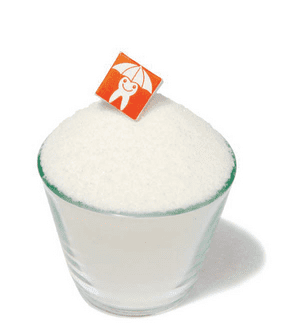Sugar exists in all shapes and forms nowadays and can be used to sweeten a huge variety of foods and drinks. We can differentiate several different types of sugar, them being glucose, fructose, lactose, sucrose, and more. The mentioned sugars obviously have a bad effect on your teeth but interestingly enough, there are some that don’t cause cavities and tooth decay. Sugars like isomaltulose and tagatose fit right into that category as they’re not broken down by the bacteria in our mouths. On the other hand, sugar substitutes are generally combined with sweeteners to have a more powerful effect.
To learn more about sugar and its substitutes, continue reading our article.
There are various ways to sweeten food and beverages. Most of the sugars are known to be cariogenic, i.e. they cause tooth decay. The best-known cariogenic sugar is the usual “household sugar” (sucrose). In addition, there are other sugars such as glucose, fructose and lactose. But there are also tooth-friendly sugars: isomaltulose and tagatose are not broken down by the bacteria in our mouths into tooth-damaging acids and therefore do not cause caries.
To make sweet but tooth-friendly foods, so-called sugar substitutes (polyols) are usually used. With the exception of xylitol, they have a somewhat lower sweetening power than “household sugar”, but are without exception tooth-friendly. Due to their origin and chemical structure, all sugar substitutes belong to the group of sugar alcohols. With the exception of erythritol, they are produced by hydrogenation of naturally occurring sugars.
Sugar substitutes are usually combined with sweeteners, which have a very high sweetening power. In addition to synthetically produced sweeteners, there are also products derived from nature. Sweeteners are mainly used in calorie-free sweet drinks and in table sweeteners.


For example, xylitol is often used in chewing gum because of its sweetness and cooling freshness. Originally, the xylose used for xylitol production was obtained from birch wood, which is why xylitol is sometimes called “birch sugar”. Xylitol can be used to sweeten food, i.e. for personal use as an alternative to household sugar. In addition to its tooth-friendly property, xylitol also has a caloric value that is about 40% lower and is suitable for diabetics. However, taking a higher dose can also have a laxative effect.
In 1982, the non-profit association Aktion Zahnfreundlich was founded by the dental faculties of the universities of Zurich, Basel, Bern and Geneva. Aktion Zahnfreundlich guarantees with its trademark – the “Zahnmännchen” – that it is only used to label foods that have been proven to be tooth-friendly.
Over 90 per cent of the Swiss population knows the “Tooth Man” and as a quality label for tooth-friendly sweets, it is on everyone’s lips, so to speak. Thanks to the efforts of the school dental care instructors, the benefits of the “tooth man” as a guide to tooth-friendly confectionery are already being talked about in the tooth brushing lessons at school. Although dental health in Switzerland has improved steadily over the past decades, there is still no reason to trivialise tooth decay. Immigrants from countries with less developed health care often suffer from caries and periodontitis, which could have been avoided with proper oral hygiene and diet. To counteract this, Aktion Zahnfreundlich offers, for example, free information material via its webshop (www.zahnfreundlich.ch/shop), which is available in German, French and Italian.
The example set by Aktion Zahnfreundlich Schweiz has now been copied in other countries such as Germany, Japan and Korea. As a Swiss acquaintance, we can therefore also meet the “tooth man” in the kiosk of a Turkish bazaar or on a palm tree beach in Ecuador.












